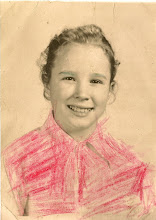This is a parable, as told by me, channeling Robert Greenleaf Leavitt.
A dog would not understand why you weed, yanking out and killing things he only sometimes eats. He doesn't understand the principle we weed by, to kill some so other chosen ones can thrive. But he doesn't object to the yanking, he just lays there watching or perhaps takes a nap. This is tolerance of what you cannot understand. One who bows his head to the floor to worship God is not always understood by the one who must imbibe or ingest his God instead. But both may tolerate one another by understanding the common need each has to relate to his divinity in some way, whether by imbibing or by bowing. Both are like dogs supining in the sun while the humans are doing their strange thing weeding, just laying there practicing tolerance.
This is my understanding of how Robert Greenleaf Leavitt perceived tolerance. He kept a Koran in his library and wrote about the similarities among Islamic, Jewish, and Christian thought often. He was also according to my mother able to read Greek, Latin, and Hebrew, so he must have thought about common concepts rooted in words the different religions shared. He focused on commonalities, not differences (citing always "do unto others" as a common adage among religions); and communication (citing how animals and humans could and did communicate.)
To him, a botanist, diversity itself might have suggested ecological health. But he was more than a botanist, he was also one who "talked to the animals." They communicated with him, and he with them; conceivably he learned much from them about tolerance--especially from dogs, horses and crows. He was always looking for commonalities between and among species as between and among religions. Hence my mother was raised in an atmosphere of proactive tolerance of differences between and among species and religions (though not politics--I trace this to the influence of Ida my grandmother.)
I think my children will find it is true of their own beliefs, such a strong traditional way of thinking about religious tolerance has existed in our family culture for so long-- along with a certain zeal (so currently manifest in our own Erika) for truth and justice. "Honest, scholarly, retiring" our family is declared in the town history. They were also highly tolerant people. Amos Blazo "attended no religious services," (though ministers of various denominations "were always welcome in his home");his father had come to America an apostate priest. His son married a woman raised by the Shakers. Their son Robert Blazo was a freewill Baptist, but even more that that he was a Stoic, which I know not only from his love letters to his fiance, but through the love of the classics he passed on down to his daughter Susan, whose son Robert Greenleaf Leavitt was, he whose childhood collection of birds' eggs, among everything else of his, has come to me personally.
By the time it came down to me through my mother from my grandfather, I was too trusting according to my mother. But I call it tolerance, that finding of differences in others as being okay, and focusing instead on commonalities amongst others; and I am happy to walk in my grandfather's shoes, whatever my mother may have said. It would be like Robert Greenleaf Leavitt to speak in terms of dogs or horses, and so I tried to do myself (above), in honor of his wonderful view on life he has passed on to us, his descendants, of tolerance, in which I have been lucky enough to have been steeped for a lifetime.
Saturday, May 30, 2009
Subscribe to:
Post Comments (Atom)

I would love to know more about this topic!!!
ReplyDeleteDogs and humans? Commonalities? tolerance? Which topic?
ReplyDelete